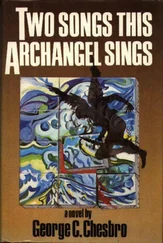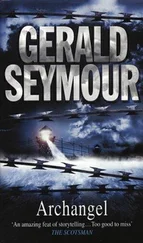For some, the meeting itself was a kind of grief. In the midst of the questions, Sir Oliver Lodge stood up abruptly and rushed out without a word. Later, he told a reporter he’d left to catch a train, but some of the younger men have been a bit cruel, the old man running from the new theory and so forth. Not easy at that age, I imagine, to find that the world has just become a different place.
I have forgotten to thank you for your report on the Washington meeting, and to say that I read your chapter on “The Evolution of the Stars” with real interest. I hope the book is coming along wonderfully, and that you and Sam are both well.
An actual report, finally, from an actual witness: how pleasing, to glimpse a scrap of reality! The articles in the New York Times , based on cables sent from London, had been as muddled as those Owen described. Men of science more or less agog —oh, indeed. Lights all askew in the heavens. The articles trumpeted the impossibility of understanding the theory while at the same time suggesting that it had changed the world.
Phoebe rose from her desk, went downstairs, and stepped outside to look at the sky. Nine o’clock and freezing cold, the moon two days past new, the stars giving no sign that they were not as they’d once seemed. The sound of her father’s viola waved down from the top of the house, bits of Bach easing through the old glass in the attic windows, spreading from her mother’s garden, where in June the peonies flourished as if fertilized by the sound, through the tiny backyard to the neighbors on all sides. Always her father played at night, retreating from what to him was a world in which everything — business, politics, music, art — grew steadily worse. Yet the house hadn’t crumbled around them; the house, in which first he and then Phoebe had grown up, and in which she was now raising her son, Sam, looked the same. So too — she checked again — did the stars above. Where you lived and what you knew determined what you expected to see. Once the moon was a smooth glowing orb, and then it had mountains and seas. Once Jupiter wandered alone, and then he had moons; once orbits were round, and the stars stayed still in space. In earlier books, she’d traced those changing perceptions. Now she was trying to write about the universe beyond the solar system. Who first thought those glowing specks were other suns, like ours? Or that some were island universes, far beyond the Milky Way?
Back in the dining room, her mother sat at one end of the table, doing something with a heap of cloth, while Sam, at the other end, frowned over his homework. Phoebe stopped in the doorway, next to the long crack that might have appeared to a stranger as part of the molding’s design, but in fact had been made when Sam, in a fit of temper after they’d first moved here, had hurled his suitcase at the wood. “I had a letter today from London,” she told her mother. “Michael’s old student, Owen—”
“Do these look the same length to you?” her mother asked, holding up two white strips.
“She’s been cutting out sleeves, for shirts to send overseas,” Sam explained without raising his head. He turned the pages of a small notebook and with his pencil added a tiny number to a column.
“Homework?” Phoebe asked her son. Look up, she thought. Talk to me.
“Sort of,” he said.
If she moved his way, she knew, he’d smile and close the notebook, say good night, and a minute later disappear into his room. Door closed behind him, books closed on his shelves, body — he’d suddenly sprouted six inches, and his hair had darkened to Michael’s shade — concealed beneath long sleeves and long pants. Instead of reaching for her secretive boy she hung back and watched her mother shuffle paper patterns, pins and chalk, and a formidable pair of scissors.
“Russia?” she asked. “Owen said his sister is headed there with another relief committee.”
“Arkangelsk,” her mother said. “Way north, near Finland. There’s been a lot of fighting there. Odette’s doing the collars and Leila’s working on the cuffs. We’ll start piecing them together next week. What else did he have to say?”
Briefly Phoebe explained the meeting in London and the results Owen had described. Sam’s pencil ticked down the numbers while her mother’s scissors yawned and then snapped through the middle of a sentence. “That sounds important,” her mother said.
“It is,” Phoebe said. “I need to understand it better, for a chapter in the new book. In fact—”
“Of course,” her mother said, snipping away. “Don’t let us interrupt you.”

BACK AT HER desk, back in her room, centered in the house like a plum in a dumpling. Her father above and her mother and Sam below — Sam, who for a couple of years after Michael’s death had clung so closely that sometimes, if she stopped or turned quickly, she’d trip over him. He liked to balance on a footstool, one hand on her thigh and the other on the frame of the large painting hanging in their tiny rented house in Washington.
“Tell me,” he’d demand, until she pointed out the figures that her great-uncle, Copernicus Wells, had painted on Pike’s Peak during the eclipse of 1878. Then she’d name the instruments — telescope, spectroscope; your father had fancier versions of those — and finally note the flaring corona and the coincidence of her being born, far away, on that exact day. Copernicus had given her father the painting, which her father had given to her—
“Just after you were born,” she’d add, pushing away the memory of Michael gazing at his new son, eyes wide beneath his reddish gold brows. “When you’re grown up, I’ll give it to you.”
Adrift in Washington then, with no idea how to continue her life, she’d imagined that she and Sam would always be close and that when he was older she’d tell him how that painting, along with her love for mathematics, had helped steer her toward astronomy. How her father had bought her a telescope when she was twelve, while her mother, who came from a Quaker family with a long tradition of learned women, had encouraged her studies. Surely Sam would want to know what she’d done before he was born. She’d imagined telling him about her time at Cornell, where she’d been drawn not to the patient collection of data, nor to speculations about the nature of the universe, but instead to the long, complicated, orderly calculations of celestial mechanics. An observant professor had helped her find a job as a computer at the nautical almanac office in Washington, where she’d briefly imagined that she might be promoted. Instead, she’d met Michael Cornelius, an astronomer with the Smithsonian.
“We fell in love,” she’d told Sam beneath the painting. A phrase that usefully hid everything, from the feel of Michael’s leg against her own to the smell of his hair warmed by the bedside candle. “We got married, and — your father always appreciated the work I did — I kept my job until you were born. I helped him with his papers.”
Sam, not quite four when Michael died, claimed to remember only his father’s instruments and the scarred wooden desk where he’d bent over maps of the sky. What different images they’d kept from those few years! The bed she and Michael had shared, their passionate absorption in astronomy, and their companionable hours of work were invisible to Sam, who remembered only what he saw and heard, and what had to do with him. In the dimly lit room where they worked after supper, Sam would sit on Phoebe’s chair, his back snugged against her side, tightly held by her left arm — but it was Michael, concentrating fiercely, whom he faced and whose smile lit Sam’s eyes. So too had he faced the student visiting from England, a young man with an odd gait who delighted in clowning and liked chanting nursery rhymes to Sam. Tweedledum and Tweedledee: that was Owen, acting out bits from Through the Looking-Glass while she calculated results from the data he and Michael had gathered.
Читать дальше













